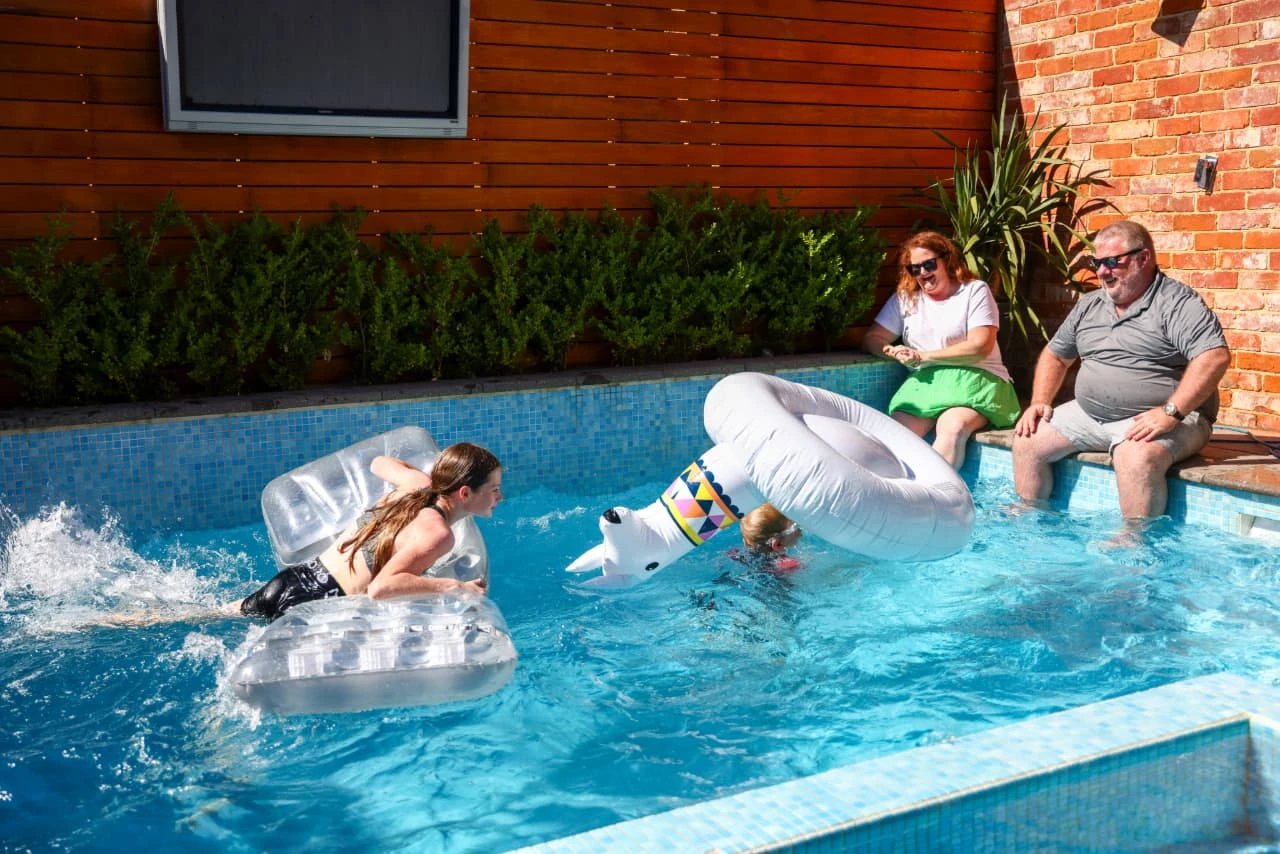Is $1 million enough to retire in Australia: how much super do I need?
Discover how much you really need to retire in Australia, whether $1 million is enough, what changed in superannuation in 2025, and how MyBudget can help you plan a comfortable, financially secure retirement.
Ever wondered if $1 million is enough to retire comfortably in Australia? The short answer: it depends on your lifestyle, health, home ownership, and how long you expect retirement to last. Let’s unpack the numbers, the latest superannuation changes, and what you can do now to make sure you’re set for a comfortable retirement.
Super changes in 2025 in Australia
After years of gradual reforms, 2025 marks a milestone year for Australia’s superannuation system. From 1 July 2025, key updates came into effect that shape how Australians save for retirement:
- Super guarantee increase: now 12%, meaning higher employer contributions for all workers
- Parental Leave Pay: super is now paid on government-funded Parental Leave Pay, a major step toward closing the gender super gap
- Super splitting: couples can share super contributions more easily to balance their accounts
- Transfer balance cap: increased to $2 million, allowing more tax-free income in retirement
- Proposed $3 million super balance tax overhaul: earnings on balances between $3 and $10 million will now be taxed at 30%, while balances over $10 million will be 40%, creating a two-tier system that affects only 0.5% of Australians
- Payday superannuation (coming 1 July 2026): employers will need to pay super at the same time as wages, ensuring faster, fairer contributions for workers.
Australia’s super system is now stronger and more inclusive than ever, setting up Australians for better retirement outcomes in the years ahead.
How much do I need to retire in Australia?
According to the Association of Superannuation Funds of Australia (ASFA), the amount you need for retirement depends on whether you’re aiming for a comfortable or modest lifestyle.
ASFA’s Retirement Standard for the June quarter 2025 outlines annual budgets for Australians aged 65–84:
- Single (comfortable lifestyle): $53,289 a year
- Single (modest lifestyle): $34,522 a year
- Single (Age Pension including supplements): $30,646 a year
- Couple (comfortable lifestyle): $75,319 a year
- Couple (modest lifestyle): $49,992 a year
- Couple (Age Pension including supplements): $46,202 a year
These budgets assume retirees are aged 65–84 and own their home outright. The comfortable lifestyle includes top-level private health insurance, reliable NBN and streaming services, and regular leisure activities and home maintenance. In contrast, a modest lifestyle involves watching utility costs closely, limited dining out, and fewer holidays. Renters and Age Pension recipients typically have tighter budgets with limited flexibility.

Is $1 million enough to retire comfortably in Australia?
If you own your home, $1 million could provide a comfortable retirement for many Australians, but it’s not a one-size-fits-all answer.
ASFA estimates that to enjoy a comfortable lifestyle at age 67, you’ll need around:
- $595,000 for singles
- $690,000 for couples.
Those numbers assume you’ll receive a part Age Pension and that your super and savings are invested wisely. But if you plan to retire early, rent, travel extensively, or help adult children financially, you’ll likely need more than $1 million to sustain your income and lifestyle for 25–30 years.
In short, $1 million might be enough for some, but not for everyone, especially as life expectancy, inflation, and living costs continue to rise.

What does ‘comfortable retirement’ really mean?
According to the same AFSA report, a comfortable retirement means having enough to:
- Pay for everyday living costs
- Cover insurance, healthcare and home repairs
- Enjoy holidays, hobbies, and leisure activities
- Replace your car occasionally
- Dine out and socialise without financial stress.
A modest retirement, on the other hand, covers the basics but leaves little room for discretionary spending or travel.
How does your super balance compare to the Australian average?
According to the Australian Tax Office (June 2023) and ASFA (Oct 2025), Australians’ super balances have reached record highs, with the average balance now sitting at $172,000.
Here’s how the median super account balances stack up by age and gender:
- Men aged 30: $41,268 (target $66,500)
- Men aged 40: $108,344 (target $168,000)
- Men aged 50: $177,194 (target $296,000)
- Men aged 60: $219,773 (target $469,000)
- Women aged 30: $36,016 (target $66,500)
- Women aged 40: $79,445 (target $168,000)
- Women aged 50: $122,150 (target $296,000)
- Women aged 60: $163,218 (target $469,000).
The data highlights a significant gender super gap, with women’s balances around 25–35% lower than men’s at every age. While super balances are rising overall, many Australians are still tracking below the comfortable retirement target.

What if I don’t have enough super to retire?
If your super balance isn’t where it should be, you’re not the only one. In fact, AFSA report that 44% of Australians retire with less than $100,000 in super. The good news? You can start boosting your balance today with a few strategic moves:
- Review your super fund: use the ATO’s YourSuper tool to compare fees, performance, and investment options
- Search for unclaimed super: there are billions in lost super waiting to be claimed
- Make additional contributions: even $50 a week can add thousands of dollars over time
- Review your investment strategy: consider whether your current mix suits your goals and risk tolerance
- Build extra income: explore part-time work, downsizing, or starting a side hustle.
Did you know? Only 1 in 3 Australians currently retire with enough Super to fund a comfortable lifestyle.
AFSA
What is the Age Pension and when can I access it?
The Age Pension provides income support to eligible Australians once you reach 67 years old (for those born after 1 January 1957).
Eligibility is based on both income and assets tests through Services Australia. You can use the Centrelink Pension Calculator to estimate how much you could receive. There’s also the Home Equity Access Scheme for retirees who want to boost cash flow using home equity.

How does inflation affect retirement budgeting?
Inflation erodes purchasing power, meaning your money buys less over time. Even a modest 2–3% rise each year can significantly impact your budget over a 20–30-year retirement.
That’s why reviewing your investment strategy and ensuring your super is earning a healthy long-term return is so important. Regularly updating your retirement budget helps you stay on track and adjust for changes in living costs, healthcare expenses, and insurance premiums.
When should I start planning for retirement?
The sooner, the better. The power of compound interest means that even small, regular contributions made early can grow exponentially over time. Start by reviewing your super, setting goals, and automating extra contributions if you can.
If you’re not sure where to start, download MyBudget’s free Personal Budget Template. It’s a great first step toward achieving your ideal retirement lifestyle.
How can MyBudget help me prepare for retirement?
MyBudget provides complete money management solutions designed to help you plan for a secure and stress-free future. Our Money Coaches can:
- Build personalised budgeting plans
- Create saving strategies for retirement goals
- Help pay off debt and manage bills automatically
- Provide 12-month financial visibility so you can plan with confidence.
For over 25 years, we’ve helped 130,000+ Australians design budgets that balance lifestyle and long-term goals. Why not see how we can help you too?
Ready to get ahead and stay ahead? Enquire online or call us on 1300 300 922 to Start planning your retirement with MyBudget today.
FAQs
How much super do I need to retire comfortably in Australia?
Most Australians need around $595,000 for singles and $690,000 for couples to retire comfortably, assuming home ownership and partial Age Pension support.
Is $1 million enough to retire in Australia?
For some Australians, yes. If you own your home and live modestly, $1 million can provide a comfortable lifestyle. However, travel, health costs, or renting may require more.
How do recent 2025 superannuation changes impact retirement savings?
The 2025 super changes, including the 12% Super Guarantee, Parental Leave Pay super, and higher transfer balance cap, mean greater long-term growth and fairer outcomes for most Australians.
What is the average super balance in Australia now?
According to ASFA’s October 2025 report, the average super balance has reached a record high of $172,000, reflecting stronger investment returns and steady growth from the rise to a 12% Super Guarantee.
How can MyBudget help me prepare for retirement?
MyBudget’s Money Coaches build personalised budgets, manage bills, and create savings strategies that help you reach your retirement goals confidently and stress-free.
Can MyBudget help me boost my super and savings faster?
Yes, MyBudget helps you budget better, reduce debt, and free up money to make extra super contributions or save for the retirement lifestyle you want.
Up next: The best budgeting tools to get ahead with your finances



